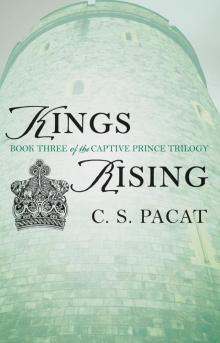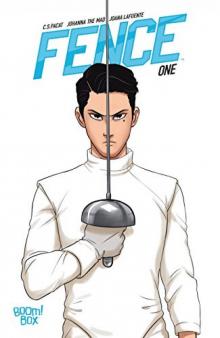- Home
- C. S. Pacat
Dark Rise
Dark Rise Read online
Dedication
For Mandy,
I wonder if we both
needed a sister
Map
Contents
Cover
Title Page
Dedication
Map
Prologue: London, 1821
Chapter One: Three Weeks Later
Chapter Two
Chapter Three
Chapter Four
Chapter Five
Chapter Six
Chapter Seven
Chapter Eight
Chapter Nine
Chapter Ten
Chapter Eleven
Chapter Twelve
Chapter Thirteen
Chapter Fourteen
Chapter Fifteen
Chapter Sixteen
Chapter Seventeen
Chapter Eighteen
Chapter Nineteen
Chapter Twenty
Chapter Twenty-One
Chapter Twenty-Two
Chapter Twenty-Three
Chapter Twenty-Four
Chapter Twenty-Five
Chapter Twenty-Six
Chapter Twenty-Seven
Chapter Twenty-Eight
Chapter Twenty-Nine
Chapter Thirty
Chapter Thirty-One
Chapter Thirty-Two
Chapter Thirty-Three
Chapter Thirty-Four
Acknowledgments
About the Author
Books by C. S. Pacat
Back Ad
Copyright
About the Publisher
Prologue
London, 1821
“WAKE HIM UP,” said James, and the hard-faced shipman promptly lifted the wooden pail he held and threw its contents into the face of the man slumped and restrained in front of them.
Water slapped Marcus, splashing him into consciousness, coughing and gasping.
Even dripping, chained, and beaten, Marcus had a nobility to him, like a knight-gallant in a faded tapestry. The arrogance of the Stewards, thought James. It lingered, like the stinking miasma of the river, though Marcus was manacled to prohibit all movement, in the bowels of Simon Creen’s cargo ship.
Down here, the ship’s hold was like the insides of a whale ribbed in wood. The ceiling was low. There were no windows. Light came from the two lamps that the shipmen had hung when they had dragged Marcus in here, perhaps an hour ago. It was still dark outside, though Marcus would have no way to know that.
Marcus blinked wet eyelashes. His dark hair fell into his eyes in dripping strands. He wore the tattered remains of the livery of his order, its silver star stained with grime and blood.
James watched the horror rising in Marcus’s eyes as he realized he was still alive.
He knew. Marcus knew what was going to happen to him.
“So Simon Creen was right about the Stewards,” said James.
“Kill me.” Marcus’s throat scraped with gravel, as though seeing James meant a full understanding of what was happening. “Kill me. James. Please. If you ever felt anything for me.”
James dismissed the shipman beside him, and he waited until the man was gone, until there were no sounds but the creak of water and wood, and he and Marcus were alone.
Marcus’s hands were chained behind his back. He was sprawled awkwardly because of it, unable to right his balance, thick chains binding him with no give to the four heavy iron brackets of the ship. James’s eyes passed over the massive, immovable iron links.
“All those vows. You’ve never really lived at all. Don’t you wish you’d been with a woman? Or a man.”
“Like you?”
“Those rumors,” said James evenly, “aren’t true.”
“If you ever felt anything for any of us—”
“You strayed too far from the flock, Marcus.”
“I beg you,” said Marcus.
He said the words like there was a system of honor in the world, like all you had to do was appeal to a person’s better nature and goodness would prevail.
The self-righteousness of it stuck in James’s throat.
“Beg me, then. Beg me on your knees to kill you. Do it.”
James hadn’t thought Marcus would do it, but of course he did—he probably loved it, on his knees in an act of martyring self-sacrifice. Marcus was a Steward, had spent his life keeping vows and following rules, believing in words like noble and true and good.
Marcus moved awkwardly, unable to balance without his hands, finding a new posture within the chains with humiliating difficulty, his head lowering, his knees spreading on the planking.
“Please. James. Please. For what’s left of the Stewards.”
James looked down at that bowed head, that battered, handsome visage that was still naive enough to hope that there was a way out for him.
“I’m going to stand at Simon’s side,” said James, “while he ends the line of Stewards. I’m not going to stop until there’s no one left to stand in your Hall, until the last of your light flickers and goes out. And when darkness comes, I’ll be standing next to the one who will rule it all.” James’s voice was precise. “You think I felt something for you? You’ve forgotten who I am.”
Marcus looked up then, eyes flashing. It was the only warning James had. Marcus pulled, calling on all his strength so that his muscles strained and bulged, flesh pitted against iron—
—for a single terrifying moment the iron groaned, shifting—
Marcus made an agonized sound as his body gave out. A laugh of relief bubbled up in James’s throat.
Stewards were strong. But not strong enough.
Marcus was panting. His eyes were furious. Underneath that, he was terrified.
“You’re not Simon’s right hand,” said Marcus. “You’re his worm. His bootlicker. How many of us have you killed? How many Stewards will die because of you?”
“Everyone but you,” said James.
Marcus’s face turned ashen, and for a moment James thought he was going to beg again. He would have enjoyed that. But Marcus just stared back at him in thick silence. It was enough, for now. Marcus would beg again before this was over. James didn’t need to provoke it. He only needed to wait.
Marcus would beg and no one would come to help him here on Simon’s ship.
Satisfied, James turned to walk out up the wooden stairs that would lead him to the deck. He had his foot on the first step when Marcus’s voice rang out behind him.
“The boy’s alive.”
James felt hotly resentful that it made him stop. He forced himself not to turn, not to look at Marcus, not to take up the bait. He spoke in a calm voice as he continued on his way up the steps to the ship’s deck.
“That’s the trouble with you Stewards. You always think there’s hope.”
Chapter One
Three Weeks Later
WILL’S FIRST GLIMPSE of London came before the sun rose, the forest of masts on the river jet-black silhouettes against a sky barely one shade lighter, joined by hoisting cranes, scaffolding, and every upright funnel and flue.
The docks were waking up. On the left bank, the first warehouse doors were unlatched and thrown open. Men were gathered shouting their names in the hope of being taken on for jobs; others were already in the shallow boats, winding rope. A satin-waistcoated mate called out a greeting to a foreman. Three children in rolled-up trousers had begun groping in the mud for a copper nail or a small piece of coal, a rope end, a bone. A woman in heavy skirts sat beside a cask calling out a day’s wares.
On a river barge making its slow way along the black water, Will pushed out from behind roped-down barrels of rum, ready to jump down onto the bank. He was tasked with checking the ropes that tethered the barrels to stop any slippage, then looping crane tethers or just straini
ng under the weight himself to unload cargo. He didn’t have the ox build of many of the dock laborers, but he was hardworking. He could throw himself against ropes and haul, or help heft sacks into a cart or a boat.
“Pier’s ahead, bring her in!” called Abney the bargeman.
Will nodded and took up a rope. Unloading the barge would be a morning’s work, before they’d break for a half hour, the men sharing pipes and liquor. His muscles already ached with strain, but soon he’d find the rhythm that would carry him through. At the end of the day, he would be given a hard crust of bread with pea soup steaming hot from the pot. He was already looking forward to it, imagining the warming taste of the soup, feeling lucky to have fingerless gloves that kept his hands warm in the chill.
“Get those ropes ready!” Abney had his hand on one of the ropes himself, right near one of Will’s knots, his cheeks ruddy with alcohol. “Crenshaw wants the barge clear before midday.”
The barge sprang into action. Stopping a thirty-ton boat with nothing but currents and poles was hard in daylight, harder in the dark. Too fast and the poles would snap; too slow and they’d ram the pier, wood splintering. The lightermen sank their poles into the silt of the riverbed and heaved, straining against the whole heavy weight of the barge.
“Tie her up!” came the call, seeking to secure the barge before the unloading.
The barge slowed to a stop, barely rising and falling on the dark water. The lightermen sheathed their poles and threw out mooring lines to tie the barge to the pier, pulling on the ropes to draw them tight, then knotting the ropes further.
Will was the first to leap down from the barge, and he looped his mooring line around a bollard, helping those aboard draw the barge tight to the pier.
“The foreman’ll be drinking with the ship’s merchant tonight,” said George Murphy, a big-whiskered Irishman, pulling rope alongside Will. That was the subject that all the men on the docks talked about—work and how to get it. “Might offer more work when this job’s done.”
“Drink makes him swing, but it also makes him miss,” said Will, and Murphy gave a good-natured snort. Will didn’t add, Most of the time.
“I was thinking I’d try to catch him after, see if I can get hired on,” said Murphy.
“Better than standing at the gate hoping to get called up for day work,” agreed Will.
“Might even have the chance of a bit of meat on Sunday—”
Crack!
Will’s head whipped around just in time to see a rope release from its tether, flying up into the air.
There were thirty tons of cargo on this boat, not only rum but cork, barley, and gunpowder. The rope whipping up through the iron rings released all of it, snapping canvas, barrels rolling, tumbling. Right toward Murphy. No—!
Will threw himself at Murphy, knocking him out of the way of the cascade, then feeling a teeth-jarring burst of pain as a barrel hit his own shoulder. Breathing heavily, he pushed himself up and looked at Murphy’s shocked face with a rush of wild relief that the man was alive, with only his cap knocked off, revealing a head of flattened hair above his whiskers. For a moment he and Murphy just stared at each other. Then the full scale of the calamity dawned on both of them.
“Haul them up! Get them up out of the water!”
Men were splashing around, desperate to save the cargo. Will did his own splashing as barrels were pushed toward the pebbled shore. He ignored his hurt shoulder. It was harder to ignore the memory of the flying rope and Murphy in the way of the crash. It could have killed him. He tried to focus on the wreckage. How badly was the cargo damaged? Cork floated, and the rum barrels were airtight, but saltpeter dissolved in water. When they crowbarred open the barrels of gunpowder, would they find it ruined?
To lose a bargeful of gunpowder—what would that mean? Would Crenshaw’s business fold, his wealth floating in the river?
Accidents were common on the docks. Just last week Will had seen a plodding draft horse shy unexpectedly as it pulled a barge along the canals, breaking its ropes and overturning its boat. Abney had a story of a snapped chain that had killed four men and sent a boatload of coal to the bottom. Murphy had two missing fingers from badly stacked crates. Everyone knew the daily reality: hazardous skimping, corners cut.
“A bloody rope’s slipped!” swore Beckett, an older laborer with a faded brown waistcoat fastened tight up to the throat. “There.” He pointed at the broken tether. “You.” He turned to Will, who happened to be closest. “Get us some more rope, and a crowbar to open up these barrels.” He gestured to the warehouse with his chin. “And be quick about it. Any lost time comes out of your pay.”
“Yes, Master Beckett,” said Will, knowing better than to argue.
Behind him Beckett was already ordering others back to their work, directing the flow of sacks and crates around the dripping barrels on the bank.
Will hurried toward the warehouse.
One of many large brick buildings that lined the foreshore, Crenshaw’s warehouse was filled with merchandise in barrels and crates, resting for a night or two before it found its way into drawing rooms, onto dining tables, and into smoking pipes.
Inside, the air was cold, and sickened with the stench of sulfur in yellow bins, and hides in stacks, and barrels of cloyingly sweet rum. Will hid his nose in his arm as a pungent whiff of fresh tobacco in stacks was obliterated by the throat-itching scent of rich spices he’d never tasted. He had spent a half day hauling crates inside a similar warehouse two weeks ago. The cough had stayed with him for days and been a nuisance to hide from the foreman. He was used to the foul smell of the river, but the fumes from the tar and the alcohol made his eyes water.
A laborer with a coarse, bright-colored handkerchief around his throat paused in his work stacking timber. “You lost?”
“Beckett sent me in to find some rope.”
“Down back.” He gestured with his thumb.
Will scooped up a crowbar that lay alongside a few older barrels and a heaped pile of lines smelling of tar. Then he looked around for a spare coil of rope that he could sling over his shoulder and take back to the barge.
Nothing here, nothing behind the barrels. . . . To his left he saw an object partially covered in a white sheet. Anything there? He reached out and tugged the dusty sheet, which slipped off and pooled on the floor.
A mirror was revealed, leaning against a cargo crate. It was made of metal, and it was old, an antique from an ancient era, before mirrors were made out of glass. Warped and streaked, it scattered his reflection in choppy glints across its metal surface, hazy glimpses of pale skin and dark eyes. Nothing here either, he thought, and was about to return to his search when something in the mirror caught his eye.
A flicker.
He looked around sharply, thinking that the mirror must have caught the reflected movement of someone behind him. But no one was there. Strange. Had he imagined it? The warehouse at this end was deserted, long corridors between stacked crates. He looked back at the mirror.
Its dull metal surface was tarnished with age and imperfections, so that it was hard to make himself out. But he still saw it, a movement in the mirror’s hazy surface that stopped him in his tracks.
The reflection in the mirror was changing.
Will stared at it, barely daring to breathe. The dim shapes in the metal were re-forming before his eyes, into columns and wide-open spaces. . . . It wasn’t possible, and yet it was happening. The reflection was changing, as if the room the mirror faced was a long-ago place, and there was no one to tell him not to come forward and look across the years.
There was a lady in the mirror. That was what he saw first, or thought that he saw, then the gold of the candle beside her, and the gold of her gleaming hair, caught in a single plait that fell over her shoulder and all the way down to her waist.
She was writing, illuminated letters on pages with rich colored borders and tiny figures fitted into the ornate capitals. Her room was open to the balconied night, with va
ulted ceilings and a series of shallow steps that led out—he somehow knew—into the gardens. He had never seen that view before, but inside him was a memory of green evening scent and the dark movement of trees. He moved closer instinctively to see it better.
She stopped writing, and turned.
She had eyes like his mother. She was looking right at him. He fought the instinct to take a step back.
She was coming toward him, her gown unfurling behind her in a train across the floor. He could see the candle she held on its stalk, the bright medallion she wore around her neck. She was coming so close, it was as though they faced one another. He felt suddenly that all that separated them was the distance of an outstretched hand. He thought he must see his own face reflected in each one of her eyes, small as candle flame, a twinned flicker.
Instead, doubled, silver and new-minted in her eyes, he saw the mirror.
All the hairs rose on his arms, the strangeness of it prickling over him. The same mirror . . . she’s looking into the same mirror . . .
A voice said, “Who are you?”
He jerked back, sudden, a stumble, only to realize—foolishly—that the voice had not come from the mirror; it had come from behind him. One of the warehouse laborers was staring at him suspiciously, a raised lamp in his hand. “Get back to work!”
Will blinked. The warehouse with its dank crates faced him, dull and ordinary. The gardens, the high pillars, and the lady were gone.
It was as if a spell had broken. Had he imagined it? Was it the warehouse fumes? He had the urge to rub his eyes, half wanting to chase the image that he had seen. But the mirror was just a mirror, reflecting the ordinary world around him. The vision in it had vanished: a fantasy, a daydream, or a trick of the light.
Shaking off the dazed sensation, Will forced himself to nod his head and say, “Yes, sir.”
Chapter Two
DAWDLING IN THE warehouse earned Will three weeks of docked pay and a demotion to some of the toughest work on the docks. He forced himself through it, though his muscles burned and his stomach cramped without food. The first three days were dredging and lifting, and then Will was put on wheel work, trudging to turn the warehouse’s giant wooden cylinder with six much bigger men, his legs burning as the wheel’s pulleys lifted giant casks eighteen feet in the air. He returned each night to his anonymous, overcrowded lodging house too exhausted to even think about the mirror or the strange things he’d seen in it, too exhausted to do more than tumble down onto the grimy straw pallet and sleep.

 The Adventures of Charls, the Veretian Cloth Merchant
The Adventures of Charls, the Veretian Cloth Merchant Kings Rising
Kings Rising Green but for a Season
Green but for a Season The Summer Palacee
The Summer Palacee Captive Prince: Volume Two
Captive Prince: Volume Two Dark Rise: Dark Rise 1
Dark Rise: Dark Rise 1 Dark Rise
Dark Rise Captive Prince, Volume 2
Captive Prince, Volume 2 Fence 1
Fence 1 The Adventures of Charls, the Veretian Cloth Merchant: A Captive Prince Short Story (Captive Prince Short Stories Book 3)
The Adventures of Charls, the Veretian Cloth Merchant: A Captive Prince Short Story (Captive Prince Short Stories Book 3) Pet: A Captive Prince Short Story (Captive Prince Short Stories Book 4)
Pet: A Captive Prince Short Story (Captive Prince Short Stories Book 4) Green but for a Season: A Captive Prince Short Story (Captive Prince Short Stories Book 1)
Green but for a Season: A Captive Prince Short Story (Captive Prince Short Stories Book 1)